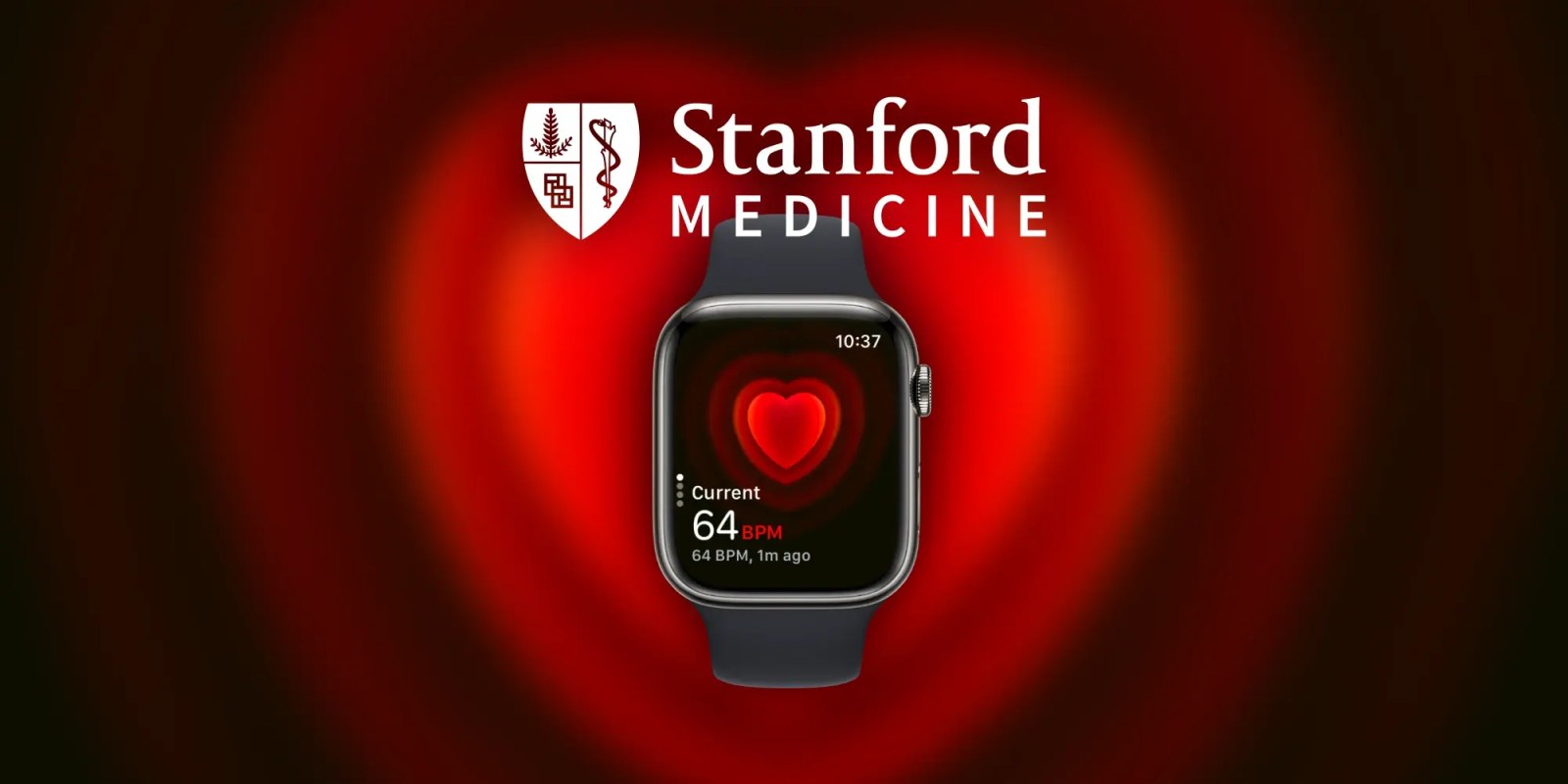
Researchers at Stanford University have launched a new study focused on investigating how Apple Watch could help identify arrhythmia in children and young adults. As first reported by MyHealthyApple, the study wants to find out how accurate the Apple Watch ECG feature is for children, and how it compares to short-term clinical monitoring.
As it stands today, the Apple Watch’s heart monitoring features are FDA-approved for irregular heartbeat detection in adults over 22 years old. Through the “Leveraging Wearable Technologies for Arrhythmia Detection in Children” study, Stanford researchers want to know more about the accuracy in children:
- To determine the accuracy of Apple Watch ECG tracings heart rate in children.
- To determine if extended monitoring with the Apple Watch can identify arrhythmia events that were not detected by short term clinical monitoring.
The study will consist of equipping 100 children and young adults with an Apple Watch for six months. The researchers will compare the number of arrhythmia events measured by the Apple Watch with events measured with a “standard clinical rhythm monitor.”
MyHealthyApple explains the significance of this study:
Investigating whether the Apple Watch and its ECG app and heart rate sensor can assist pediatric patients and their healthcare teams is one step in better understanding and managing pediatric cardiac care.
Currently, treating children who need arrhythmia monitoring can place a huge financial and time burden on patients and their families. And it can be a painful source of stigma for these children. Being able to use an Apple Watch to passively monitor a child’s heart rate and rhythm from just their wrist would be a game changer for these patients and their families.
Stanford University has been a leader in Apple Watch studies since the device’s introduction. Most notably, the university teamed up with Apple to launch the Apple Heart Study. This study consisted of over 400,000 participants, all of whom wore an Apple Watch, and ran for eight months.
Follow Chance: Threads, Twitter, Instagram, and Mastodon.
FTC: We use income earning auto affiliate links. More.



Comments